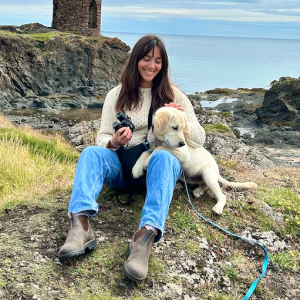The Critical Digital Education Research Group takes a broadly sociological approach to exploring the role of technology in learning and education nationally and internationally. We are a methodologically diverse group, employing varied approaches to capturing all aspects of education, from everyday classroom practices to global policy impacts, with a commitment to creative digital methods as critique.
Our research is funded by multiple organisations including the British Academy, DFID, the Dieter Schwarz Foundation, the European Commission, the ESRC, the Gates Foundation, John Fell Fund, the British Educational Research Association, Hitotsubashi University, the Nominet Trust, the Oxford IT Innovations Fund, Goldman Sachs Gives, Google, the Wellcome Trust and Wikipedia.
Our activities build upon the past work of the Learning and New Technologies Research Group (LNTRG) that was based at the department from 2010-2021. Our four areas of focus are:
Social justice and inequality
This theme is concerned with the ways digital technologies produce or exacerbate existing social and educational inequity. In contrast to the instrumental value of innovation, we make visible the complex economic, cultural, and pollical injustices that can arise in the development and use of technology.
Our ESRC funded EdTech Equity project currently examines these questions in schools, through rich ethnographic work; and our Tech for Good project explores the realities of aiming to use technology for inclusive social change.
Cultural Political Economy
This theme draws attention to the economic and geo-political dynamics that shape the everyday uses of technology in classrooms. Our work charts the ways that an array of political and commercial actors (including supranational organisations, foundations, BigTech, investors, and EdTech startups) have increasing power in influencing policy and practice, where commercial interests can stand in for public concerns.
Our BERA-funded project on AI in education in England, reveals how policy discourse around AI is shaped by competing stakeholder interests and embedded in broader socio-political and economic agendas, highlighting the need to move beyond technological solutionism to address the structural conditions influencing education.
Data intensive governance and policy
This theme examines the ways trace data, algorithms, and ‘AI’ are increasing ordering and providing instrumental rationales for education and wider society, displacing expertise, normalising surveillance, generating new kinds of authoritative knowledge, and shaping forms of policy making. Our research has unpacked the ‘black box’ of AI in education, examined the ways data-driven technologies reinstate behaviourist pedagogies, and found disconnections between the governance of trace data and ethical debates in the field.
Participatory and sustainable futures
This theme develops alternative visions and methods for ethical, inclusive, democratic, environmentally sustainable and community-driven education and technology. Through engaging diverse constituents and marginalised groups across the globe, this work aims to unpack the power relations at play in the design and production of EdTech.
The ESRC funded Teaching for Digital Citizenship project is examining the ways school curricula and the everyday experiences of young people are being shaped by technology, particularly with respect to their ability to participate in, and benefit from society. The Co-designing AI with Students project is developing methods to support the voice and agency of students to participate in decision-making in relation to the design and deployment of new technologies in higher education.













